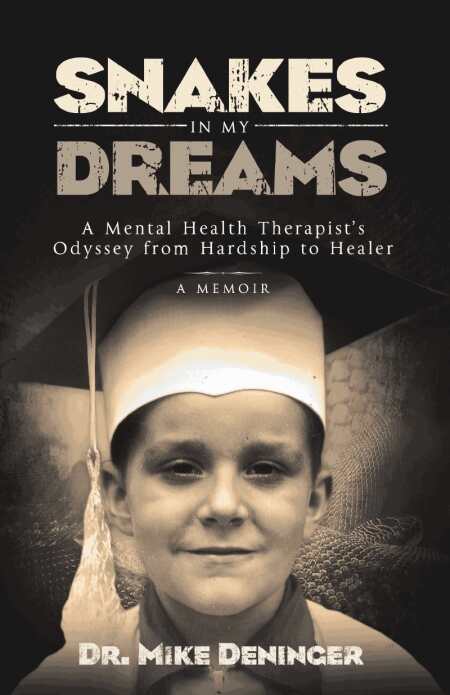Snakes in My Dreams
A Mental Health Therapist's Odyssey from Hardship to Healer
Why read one more memoir about a troubled childhood? Why read another story about recovery from trauma? Because in the case of Snakes in My Dreams, the author has a powerful message: Childhood sexual abuse can be confronted, understood, and overcome.
Mike Deninger has not only overcome abuse, but also gone on to remarkable success as an adult. He tells of an impoverished childhood with an alcoholic father and an enabling mother, yet he has advanced far beyond his Rochester, New York, roots. Deninger holds advanced degrees, and he served as a dean at Gallaudet University for many years before becoming a licensed clinical therapist. His academic peers never suspected that their accomplished colleague fought demons like alcoholism and anxiety, or that he struggled to understand emerging memories of abuse at his father’s hands. With the help of a talented therapist, Deninger was able to access those forbidden memories and move beyond them.
Using first-person narrative peppered with journal entries, dreams, letters, and poetry, Deninger illustrates the multiple layers of family secrets that he uncovered. In the initial chapters, and again near the end of the book, these elements are disconcertingly detached from one another both topically and sequentially. The core of the story, however, benefits from the multifaceted approach. As the chronology begins to flow, his collage technique allows Deninger to share stories from two or more perspectives at once.
Honest and unflinching, Deninger deals thoughtfully with controversial subjects like recovered memories and homosexuality. He writes openly about his intent to include just enough detail to paint a true picture of his mistreatment, without resorting to the salacious images so often used in tell-all memoirs. Certainly some of the childhood scenes are disturbing and uncomfortable to read, but Deninger never resorts to obscenity in his effort to bring dark moments to light.
Instead, Deninger’s telling is quietly observant and sometimes very funny, even self-effacing. His anxious admission of his sexuality to his therapist at the very last minute of his first session—“I am bisexual!” he shouts as he gets up to leave—will remind readers of other talented memoirists like Augusten Burroughs.
Deninger’s willingness to examine his own motives and admit his own faults adds credibility to a story that his family often doubts. He even gives the questioning voice in his head a name, Sebastian, and acknowledges his own uneasiness with revealing his memories. Deninger’s accusations of abuse are clearly not made on a whim, but arrived at after much investigation and soul-searching.
Dedicated to spreading the message that people can recover from early trauma, Deninger today trains counselors in alternative methods of trauma recovery therapies, such as Eye Movement Integration and Neuro-linguistic programming. A second book is in the works.
Reviewed by
Sheila M. Trask
Disclosure: This article is not an endorsement, but a review. The publisher of this book provided free copies of the book and paid a small fee to have their book reviewed by a professional reviewer. Foreword Reviews and Clarion Reviews make no guarantee that the publisher will receive a positive review. Foreword Magazine, Inc. is disclosing this in accordance with the Federal Trade Commission’s 16 CFR, Part 255.

